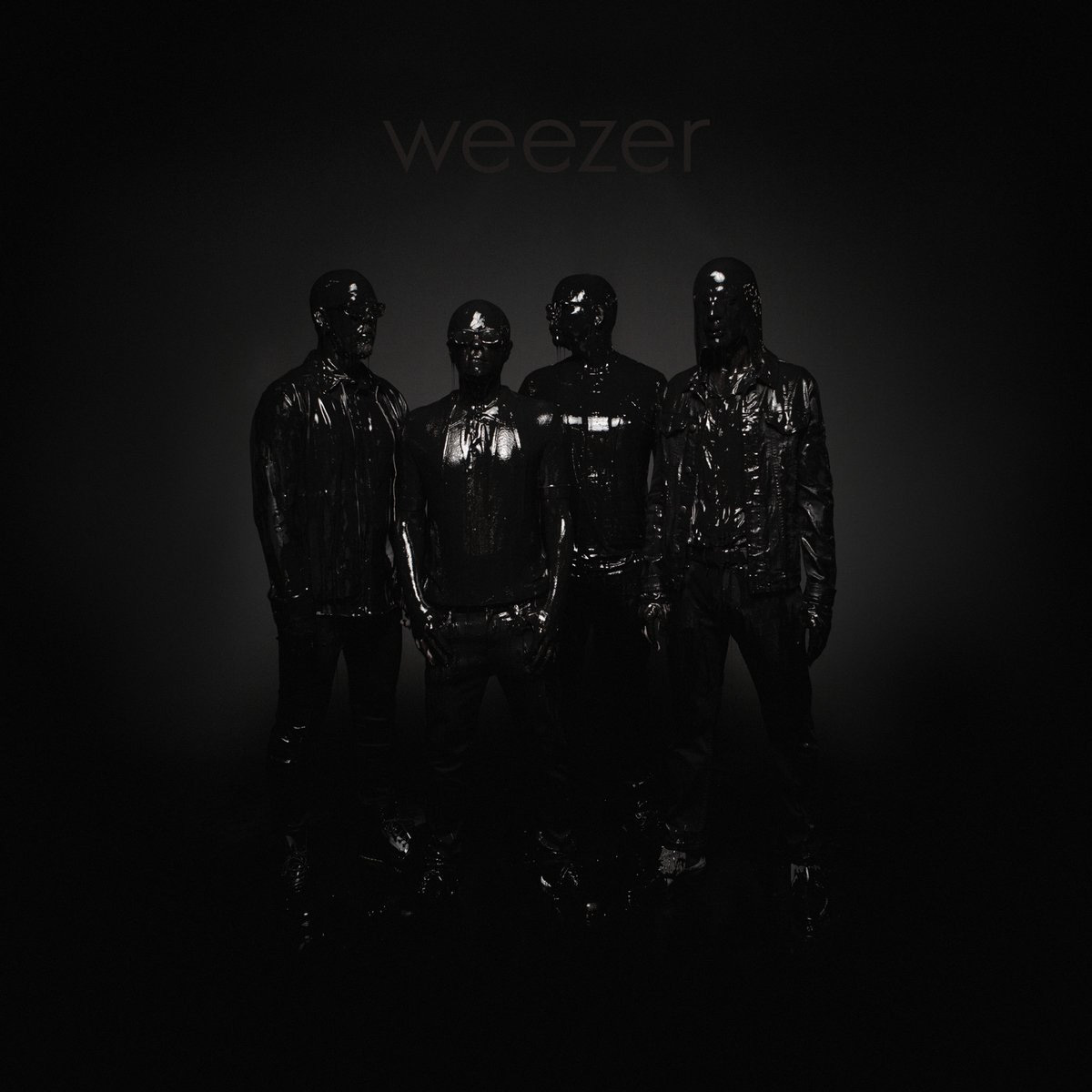Album review: ‘Weezer (Black Album)’ trades nostalgia for confused genre shifts and tired lyrics

(Courtesy of Crush Music/Atlantic Records)
"Weezer (Black Album)"
Weezer
Crush Music/Atlantic Records
Released Friday
By Max Kieling
March 2, 2019 12:30 p.m.
Weezer’s 13th studio album is experimental, but not for the sake of experimenting.
Accurately embodied in their masked appearance on the album cover, “Weezer (Black Album)” is almost unrecognizable as a Weezer album. The band forfeits the characteristically gritty, unrefined tone of prior albums for an underwhelming attempt at conformity to an “experimental” modern pop rock sound. As for lyrics, Weezer struggles for content, as idioms and nonverbal vocalizations monopolize their intros and bridges. Despite departing from their classic style, the band still embeds a familiar creativity in the LP, reminding listeners that not all hope is lost – just most of it.
“Can’t Knock the Hustle,” the first song on the album, introduces the band’s new, unfortunately indistinct style. While the song sustains some of the band’s original garage-band energy, the menial chorus chants, “Hasta luego, adios,” and the other meaningless lyrics detract from the explosive bass line. The song could easily fit in the “Over the Hedge” soundtrack, or any other forgettable mid-2000s movie for that matter. The sassy, fun melody distracts from the lack of depth. In fact, “Can’t Knock the Hustle” establishes another crux of the album as it desperately struggles to find a genre.
“Zombie Bastards” and “Piece of Cake” both confront the same categorical issue. Although a lack of tone is not inherently bad, the songs’ intense antithesis between acoustic verses and electric choruses verge on discombobulation rather than art. The confusing contrast between acoustic chords and distorted synth in “Zombie Bastards” reaches for the stylistic sounds of Twenty One Pilots’ “Vessel,” but does not commit to the role.
Tedious melodies and an unoriginal clap-beat leads to a similar lack of emotion in “Piece of Cake,” while “The Prince Who Wanted Everything” appears to be an honorable tribute to the late artist Prince. But the second song populates its verses with overused filler such as “Once upon a time there was a prince/ He tried to save the world with funk rock riffs.” The derivative trope of saving the world with rock is one that would have fit better in an actual rock song.
And even though “I’m Just Being Honest” uses a cool, Coldplay-like intro, the song strips itself of any importance through lyrics like, “Don’t get mad at me, I’m just being honest (I’m just being honest)/ Whoa-oh-oh.” The honest truth about the song is that its lyrics say absolutely nothing meaningful.
One of the album’s first released singles, “Living in L.A.,” also fails to offer anything original within its lyrics. The dry acoustic guitar is a signature retirement from what once made Weezer great – perfectly executed belligerent garage-rock. Moreover, the trope of a being attracted to a girl in Los Angeles is so overused that it’s hard to believe the album isn’t really just the B-sides from “Pacific Daydream,” the band’s 11th studio album.
Similarly, “Too Many Thoughts in My Head” provides almost no evidence that any of those thoughts found their way onto the page. However, the song asserts evidence that the authentic Weezer style is not yet completely gone. The track’s fast-paced beat and deviating snare resemble the excessive, confident rock sound that once defined the band.
Songs like “High as a Kite,” “California Snow” and “Byzantine” all exhibit the trait of pure rock overkill as well. “High as a Kite” offers addicting crescendos into an intense chorus that would’ve been considered classic Weezer if not for the inorganic, electronic instruments. The other two exude similarities. Both reincarnate the band’s beloved catchy melodies and overdone choruses, but struggle through a tonal dissonance caused by trap snares and electric beats.
The snappy, exaggerated choruses of “Weezer (Black Album)” evoke nostalgia, but the charm is quickly diluted by an erratic fluctuation in genre and a void of lyrical sincerity. There’s no doubt Weezer will always hold a special place in fans’ hearts, but the album only acts as a reminder that this special place may be difficult to find again.

